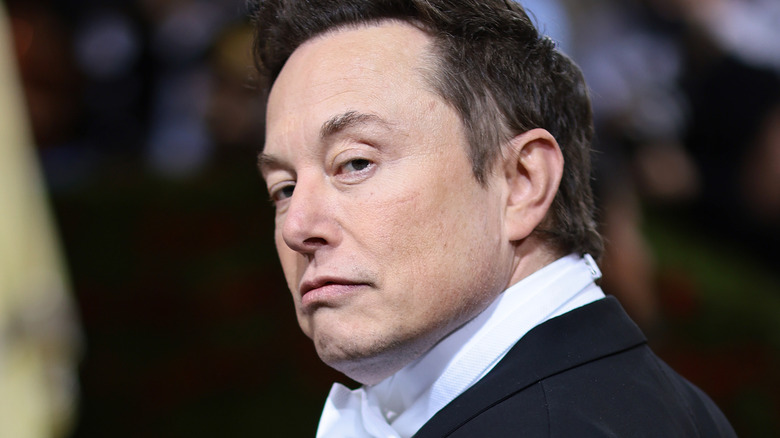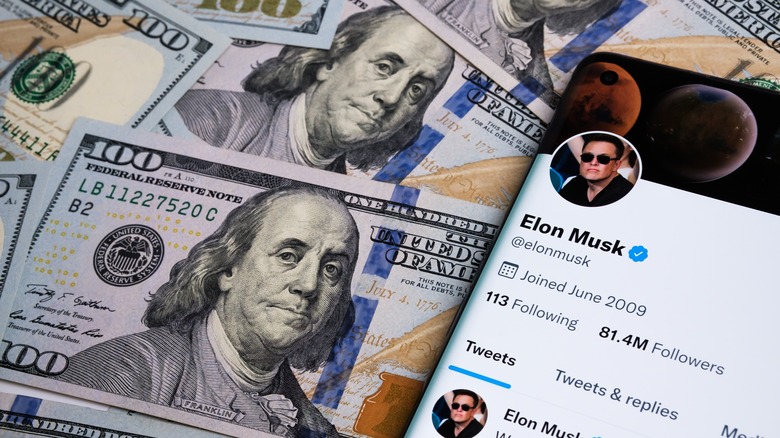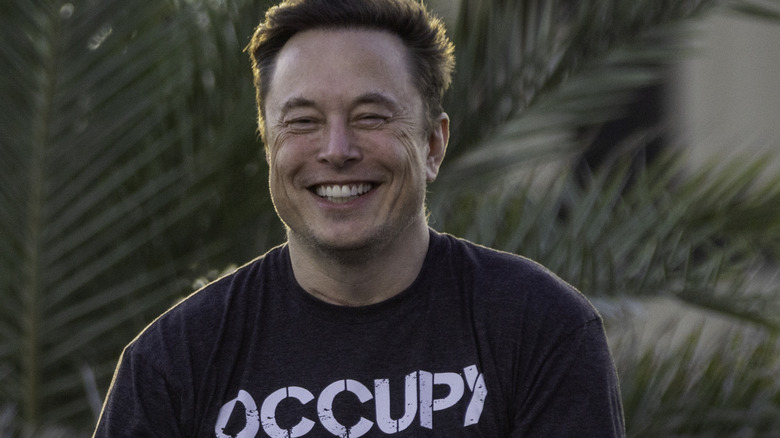Fired Twitter Execs Face A Long, Ugly Battle With Elon Musk Warns Expert - Exclusive
Elon Musk hasn't just cleaned house at Twitter, but taken a scorched-earth approach. Less than a week has passed since his $44 billion deal to purchase the social network closed, and already Musk has ousted top execs — including Twitter's former CEO, Parag Agrawal — and installed himself as new chief executive. The big question is, with Twitter going private, has Musk also opened himself up to legal backlash?
According to a report from The New York Times, Musk has not only shown Twitter's former C-suite the door, but is claiming that the terminations were "for cause," too. If that's upheld, it could shield the Tesla CEO from millions in so-called golden parachute payments that Agrawal, chief financial officer Ned Segal, former general counsel Sean Edgett, and former top policy and legal exec Vijaya Gadde would otherwise be contractually due.
It's a big bill if Musk has to pay up: anywhere up to $60 million, according to reports. On the flip side, dragging out that liability through the courts could also be costly. SlashGear spoke to a legal expert to figure out just what Musk's game-plan might be.
There's no law against firing your board
"This all boils down to a contract dispute," attorney Ron Zambrano, the employment litigation chair at Los Angeles-based West Coast Trial Lawyers, told SlashGear. "Are the fired executives entitled to their severances under their respective contracts because the contention by Musk that they were fired for cause is either made in bad faith or completely baseless? Or did these executives do things that could be viewed as violating their employment contracts? If they did, then Musk would have grounds to fire them for cause."
What isn't good reason to contest Musk's decision, however, is his new strategy for Twitter. While ousting the whole board and assuming total control himself might seem extreme — not to mention give Tesla shareholders some legitimate concerns that the chief executive's attentions are divided, albeit with potential benefits there too — it's actually not grounds for a lawsuit.
"Based on news reports, the motivation behind these terminations of employment is Musk's desire to replace the leadership at the highest executive levels with folks that he wants in those roles," Zambrano explains. "This motivation is lawful."
What legal experts say Elon Musk should do next
The question, then, is just what might make for a compelling case? As Zambrano tells it, the only real justifications for a lawsuit from the former Twitter execs would be if it could be proved Musk singled them out because of protected class — including race, gender, or national origin — or if they'd been targeted as whistleblowers or similar. "Barring those exceptions," the attorney says, "these folks have not suffered a violation of their employment rights and it all comes back to what's in their contracts."
It won't only be contracts that are being examined with a fine-toothed comb, however. Asked what he'd be recommending Elon Musk do next, Zambrano says the big thing is digging through whatever the former C-suite has left behind that could count against the execs. It's from that evidence that a "for cause" dismissal case could be built.
"Musk and his team should start scouring internal Twitter communications and activity to support a for cause finding for terminating the executives he has fired," Zambrano says he'd advise Musk, were the new Twitter owner his client. "If there are in fact admissions and evidence by these affected employees that should have led to their involuntary exit beforehand, that would totally bolster his defense to any claim that firing these executives for cause was done in bad faith."
Even an expensive lawsuit is small change, comparatively
While litigation is seldom inexpensive, it may not be the dissuading factor to drag the former Twitter execs through the courtroom that you might think. In fact, Zambrano says, Musk's costs for that — even if considerable by normal lawsuit standards — would still likely only amount to a fraction of what the golden parachute payouts would reach.
"In a worst-case scenario, Musk may be looking at a $1 million legal tab," Zambrano suggests. "Strategically, Musk will spend hundreds of thousands of dollars in legal fees to reduce what he has surely been told is the money these employees are probably owed in payouts. He can drag this out in the courts for so long the fired executives will eventually compromise just to get it over with and receive some money."
While the Twitter purchase may have been completed relatively quickly, with Musk rapidly stepping in — complete with a sink in his arms — to seize control at the social media company, a lawsuit with the former execs would be a far longer affair. In fact, Zambrano predicts, it could stretch from three to five years following appellate review. In the end, it may all come down to who has the most patience.



